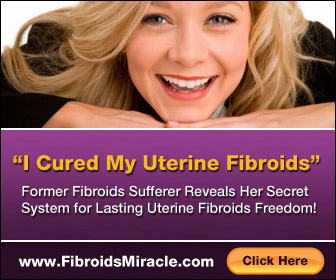Uterine Fibroids Risks During Pregnancy and Child Birth
As fulfilling and exciting it is to get pregnant and have a baby is, the experience also puts a woman (and her baby) at great risk. The many changes that pregnancy causes in a woman’s body increase her exposure to health risks. Existing conditions like uterine fibroids could also result in various other symptoms.
The Infertility Myth
Many believe that fibroids cause infertility. When a woman is diagnosed to have fibrous tumors in her uterus, one of the most common questions is ‘can I still get pregnant?’. The truth is that fibroids do not normally affect fertility or pregnancy. In fact, a pregnant woman might not know that she has fibroids until they show in imaging tests. Symptoms related to fibroids could be dismissed as part of the pregnancy experience.
If you do know that you have fibroids and you want to get pregnant, you need to talk to your doctor to have your tumors examined. The size and location of your tumors in the uterus could affect the success of your attempts to get pregnant.
Pregnant with Tumors
A woman with fibroids can have a relatively ‘uneventful’ pregnancy that’s free of unexpected symptoms and complications. Those who experience complications are estimated to be around ten to thirty percent of those diagnosed to have fibroids in the uterus.
The tumors in the pregnant woman’s uterus are made of dense muscular tissue and cannot bleed during pregnancy and after labor. What these tumors can cause, however, is bleeding. Studies show that about 30% of women with fibroids experienced both pain and bleeding during the first three months of pregnancy.
In pregnant women with fibroids, there a 60% chance of bleeding during the first trimester if the fibroid is in contact with the placenta or when the implantation is close to the fibroid. The risk drops to 9% when the two are not connected.
It is not unusual for women with fibroids to go into labor prematurely. Pre-term labor and delivery is twice as likely to happen when fibroids are present. The same odds are estimated in assessing the risk of spontaneous miscarriage in women with and without fibroids.
There’s a higher risk of delivering via C-Section for women who have fibroids. The tumors could slow down the progress of labor due to the lack of uterine contractions or perhaps even causing a blockage in the birth canal. Other complications of having uterine fibroids are breech birth and heavy bleeding after labor and delivery.
Safeguarding Mom and Baby Against Fibroids
Even if fibroids are not life-threatening, their presence in the uterus can present risks for the woman and her unborn child. Detecting these tumors might pose a challenge as it could easily get ‘camouflaged’ along with other pregnancy symptoms. But, it’s not impossible to get a clear diagnosis.
Armed and empowered by the right information, a pregnant woman with fibroids can search for, evaluate, and decide on a treatment program. This will allow her to successfully manage her symptoms and minimize the effects of uterine fibroids on her health and that of her baby.


